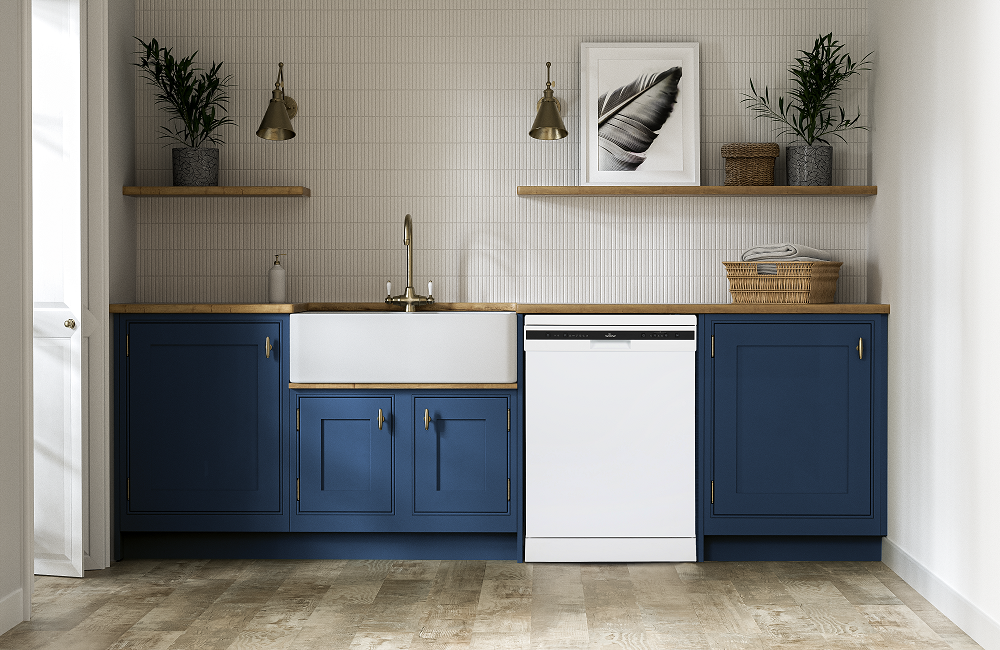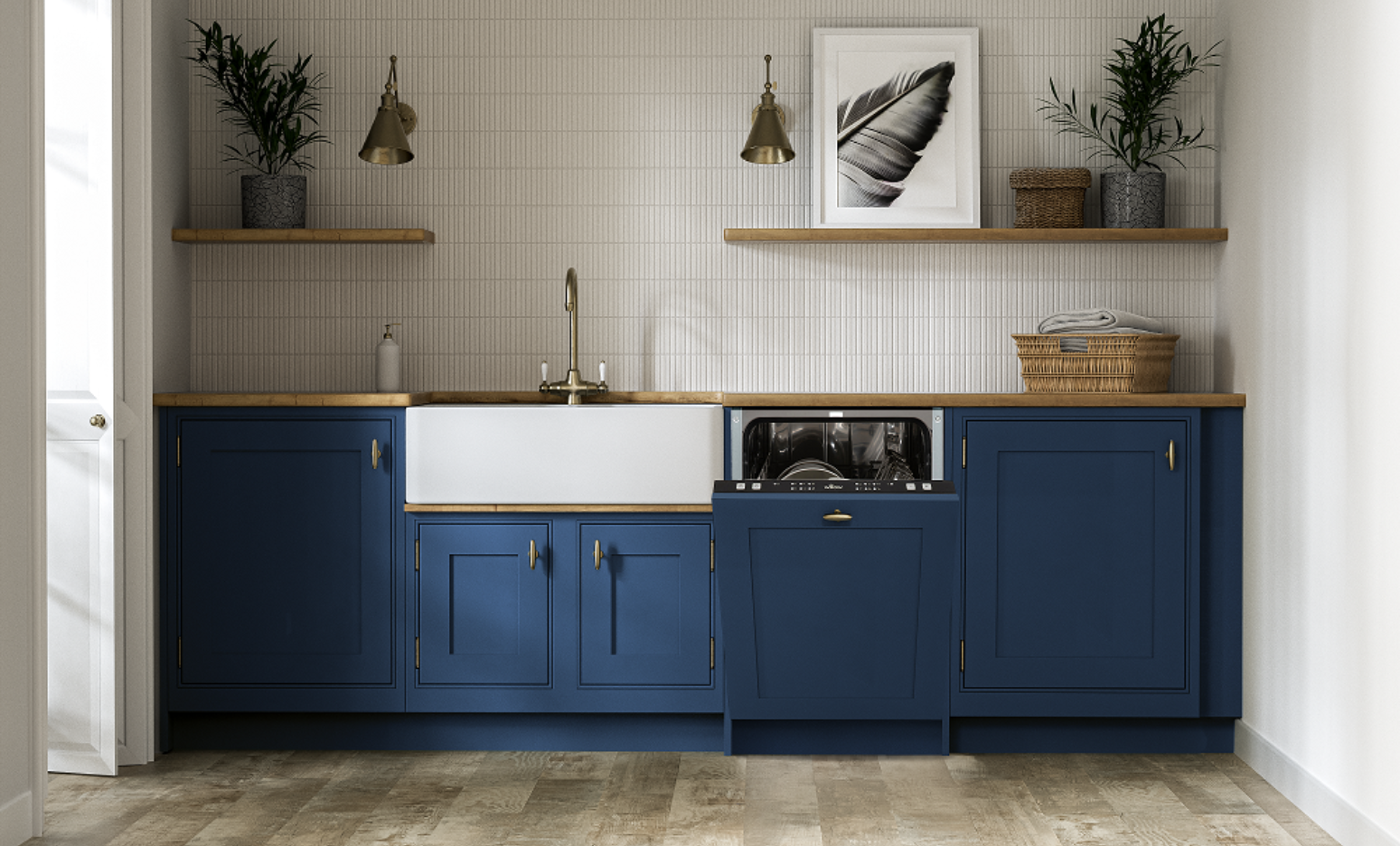Dishwasher vs handwashing - which is more efficient?
Dishwashers are fast becoming a staple in the average home, but who wins when it comes to dishwasher vs handwashing? According to research undertaken in November 2023, 49.5% of UK households owned a dishwasher. If you don't own a dishwasher yourself, you may have a lot of questions about them. Is it worth adding another appliance to your kitchen? Which method uses the least energy? In this handy guide, we explore the ways in which a dishwasher could benefit you and your busy lifestyle. We'll also compare dishwashers with hand washing and see which method is more efficient.
Why should you get a dishwasher?
People purchase dishwashers for many different reasons. There are so many benefits to owning a dishwasher vs handwashing. Whether you have a big family or you live alone, here are some of the reasons why you might choose to add a dishwasher to your kitchen.
Time saving
If you have a busy lifestyle, the last thing you want to do is spend time at the sink washing up. The time it takes to wash up depends on how dirty your dishes are and how many you have. After a family meal, it could take up to an hour to clean up. Having a dishwasher means that once the dishes are loaded, you don't have to worry about them until the cycle has ended. Loading and unloading the dishwasher will take a lot less time than washing everything by hand. You can simply press start and get on with something more important.
Cleaner crockery
It doesn't matter how long you spend at the sink, sometimes certain items just come out so much cleaner in the dishwasher. You might find that no matter how long you spend polishing glassware, it always ends up streaky. Many dishwashers will have a 'delicate' or 'glassware' setting which, when used, will help you to get cleaner glassware. The lower temperatures of this setting will eliminate that cloudy or streaky look that items such as wine glasses may get.
Gets rid of more bacteria
The fact that dishwashers eliminate more bacteria than hand washing does, should be enough to convince you to invest in one. Whilst some people may prefer to hand wash items, the water is nowhere near as hot as the water in a dishwasher. The highest temperature you're likely to get from your tap is 50°C, whereas dishwashers can reach up to between 80-85°C. These higher temperatures kill more bacteria.
Safer
Using a dishwasher can be so much better if you want to avoid damaging fragile crockery or glassware. When you wash up by hand, there's always the risk that you may drop something, especially with soapy hands. If you have pieces of crockery which you want to take care of, a dishwasher is a much safer option. The same goes for fragile glassware, especially when using the aforementioned glassware setting. Before putting any glassware in the dishwasher, you should first make sure it is dishwasher safe.
Using a dishwasher is also a lot safer when it comes to knives. It is so easy to injure yourself on a rogue kitchen knife in a washing up bowl. Although it is recommended that knives aren't placed in bowls of soapy water, mistakes can be made. By using a dishwasher, you can ensure that there's no risk of knife related injuries as long as you load the cutlery correctly.
One less chore
Having to wash the dishes is just another chore to add to your never-ending list. It can be very time consuming, but the introduction of a dishwasher can make things a lot easier. Whilst you do have to spend time filling and emptying the dishwasher, it won't take as long as washing each item by hand. Gaining this extra time back means you have more time to yourself. It's also one less chore for the family to argue about!
Saves energy and water
You might be surprised to learn that a dishwasher can actually be more environmentally friendly than hand washing. Hand washing your dishes can use up to 60 litres at a time, depending on how much you've got to clean. However, a standard sized dishwasher can use less than 15L per cycle.

Dishwasher vs handwashing
We all have different methods of washing up. Some people like to fill a bowl with warm water and washing up liquid - washing up bowls tend to hold around 10L of water. As the water gets dirty, it may need replacing depending on the amount of dishes you have. Others, may prefer to wash up by leaving the tap running and cleaning the dishes under the running water with a detergent soaked sponge. Both methods will require rinsing under the running water and both methods will use a lot more water than the average dishwasher per cycle.
When a tabletop dishwasher only uses 6.5L of water per cycle and a standard freestanding dishwasher with 13 place settings uses 11L, it makes perfect sense to ditch the handwashing!
Hand washing can also produce a lot more greenhouse gases than a dishwasher does. These greenhouse gases come from both using a large amount of water and heating up the water. As a dishwasher uses less water, it therefore produces less greenhouse gases.
What are the different types of dishwasher?
If you're environmentally conscious, you don't need to feel guilty about choosing to use a dishwasher over hand washing. Home Feeling has a diverse range of dishwashers to choose from.
Freestanding dishwashers - If you have space in your kitchen, then a freestanding dishwasher could be the right choice for you. We stock both full size and slimline dishwashers, ranging from 10 to 14 place settings.
Integrated dishwashers - If you're looking to renovate your kitchen, then why not consider an integrated dishwasher? These either full size or slimline dishwashers are built in to your kitchen and hidden behind a cupboard door. If you're someone that likes a minimalist kitchen, then this may be the right choice for you.
Tabletop dishwashers - If you don't have the room for a regular dishwasher or you're living in a single person household, then you should look into a tabletop dishwasher. These small dishwashers do the same job as a regular sized one, but are better suited for smaller households. The Willow WTTD6W 55cm tabletop dishwasher has 6 place settings, 7 wash programmes, delay start and an eco setting - plus many more features.

